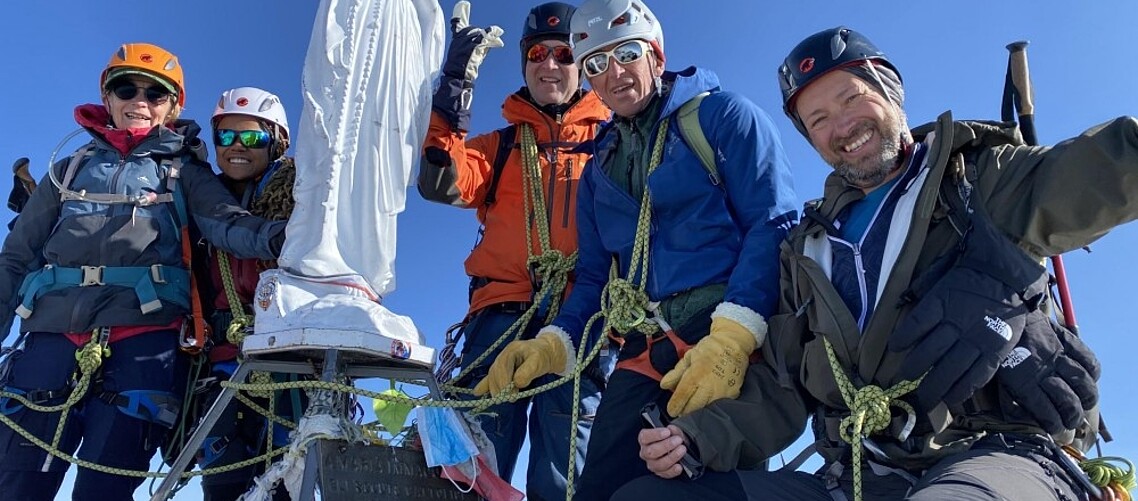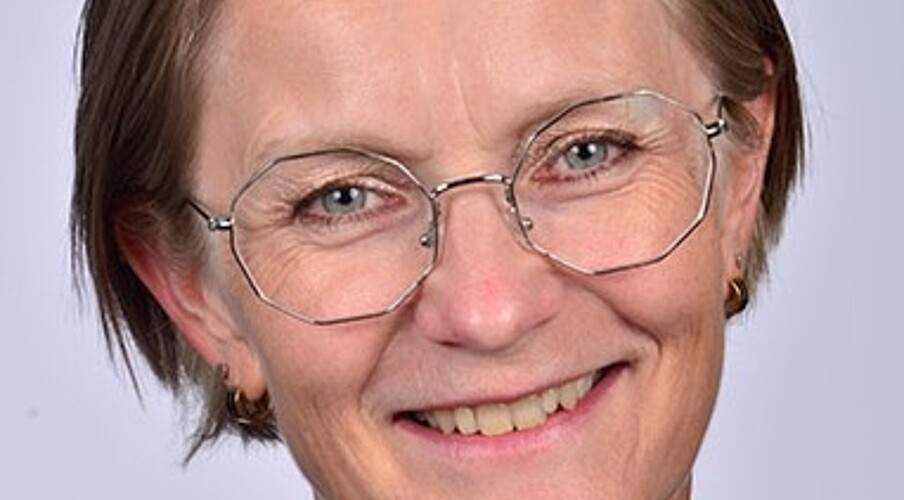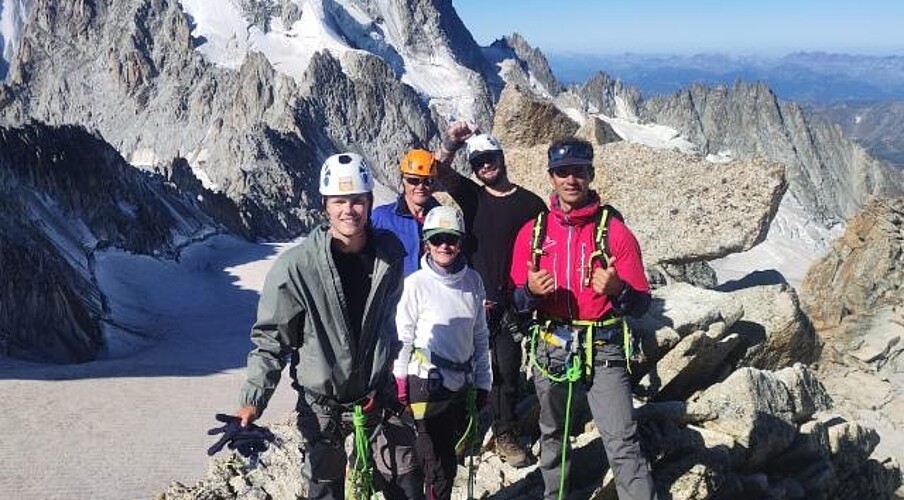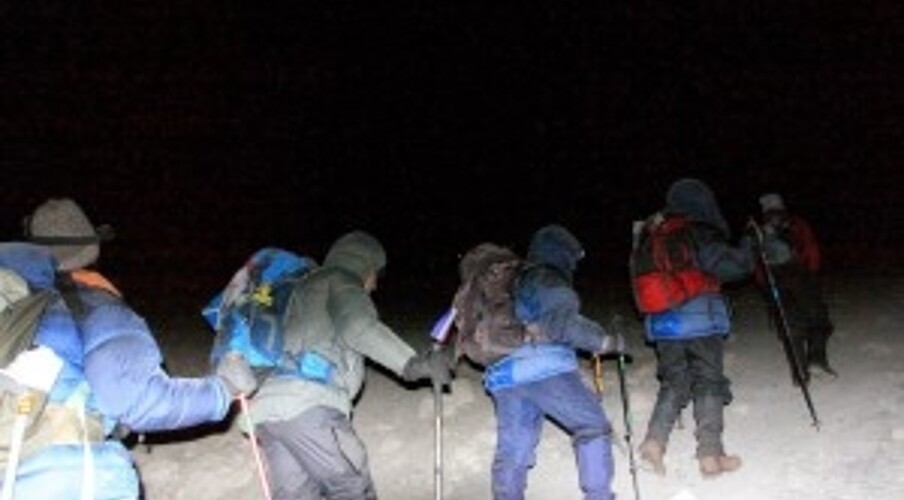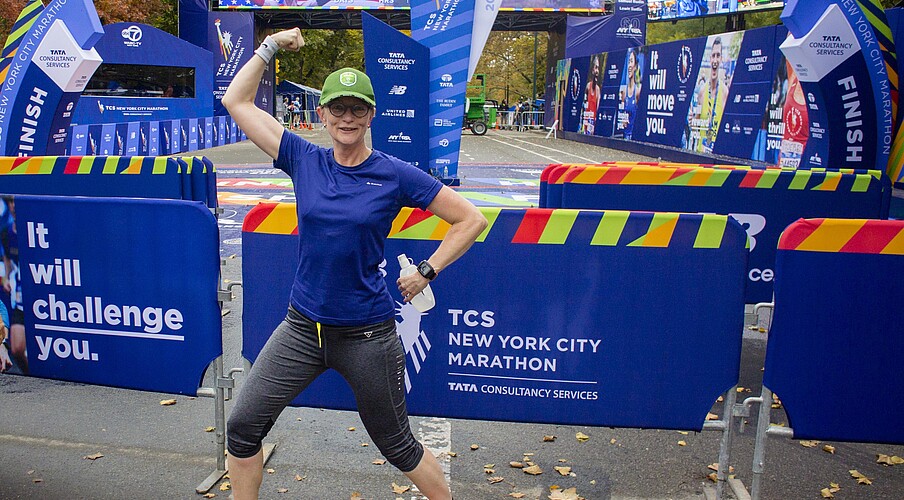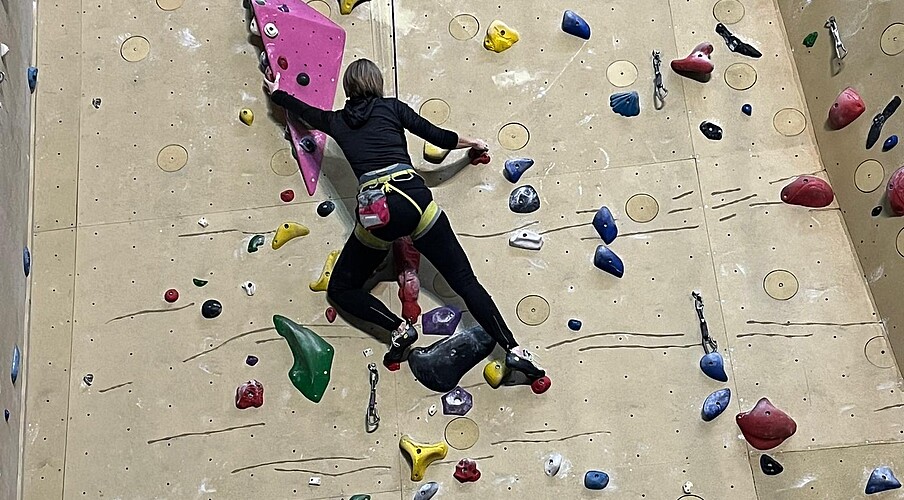Now Manager of Agency, Contracting and Lending teams at ABN AMRO, where she heads close to 60 people in Amsterdam, Jeanine had chosen the Kilimanjaro Women in Leadership elective for the learnings she hoped to gain from a course that was created by ECWO founder, Prof. Dianne Bevelander, as a way of women learning to trust and rely on other women. A decade later she keeps those learnings close, along with a spirit of adventure that has also seen her reach Everest Base Camp, summit Gran Paradiso and run the New York Marathon. We spoke to Jeanine about her amazing journey.
Can you give us some insight into your professional journey – you studied law and now head up teams at ABN AMRO dealing with large and international financing structures . How does this differ – or not – from the career path you envisaged when you were finishing law school?
What I have learnt over my professional career is that life is not all about successes. This understanding started as soon as I had graduated from law school in 1993 at a time when unemployment was really high. I was in a class of 1000 law students at the University of Amsterdam, and finding a job in a law firm was very difficult and so my first job as a new graduate was at the coat check at the Van Gogh Museum. I cried after the first day. I thought here I am, with a law degree, and I am taking coats at a museum. It wasn’t long after that that I joined ABN AMRO, at a junior level. If I think about where I started and where I am now, it’s been a really massive journey, moving through a lot of salary scales into my current position.
Did the experience of taking coats at the Van Gogh museum give you something that you might not have recognised at the time?
At the time, I just wanted to work so I took the job. Looking back at it, it laid the foundation for something I really believe in and implement - and that is the equality of everyone in a team. Of course, organisations have hierarchies, but the value of a team member doesn’t come from that or even what degree a person has. Regardless of your job position or what you earn, you have value in an organisation and I try and ensure that all members of my teams know this.
You undertook an EMBA in 2012/2013. Can you remember what motivated you to sign up?
I was heading up a contract team at ABN AMRO and then moved to another team, into a position not related to my law degree. I knew that if I wasn’t practicing law I would eventually be seen as someone who did a law degree a million years ago and that my qualification in this area would fade into the background. I thought long and hard about what my competitive advantage could be in making a career in a bank with thousands of employees. It so happened that, as I was contemplating this, I found myself in Rotterdam Central Station and saw an advertisement for the RSM EMBA. I immediately thought it was a sign. I registered for the EMBA and loved every minute of it.
It was during your EMBA that you encountered the Kilimanjaro Women in Leadership Project. Can you share some memories of that time and the role it played in your life?
It was offered as an elective during the EMBA and it really appealed to me. If I look back at my notes from that time, I see that I selected it because of the learnings the programme was built around - about shared leadership and especially how women can support other women. One exercise we did in preparation is select a number of personal values. One of the options that I could have ticked was “adventure” but I didn’t check that box which makes the fact that I have not stopped taking on new climbing and running adventures since then quite amazing to me.
At the time I started training for Kilimanjaro, my leadership style was tough. International financing means dealing with the CEOs and CFOs of very large corporates and being tough was what I believed was needed for the role. But when I got to Gilman’s Point, I was utterly drained of all my energy and was no longer able to keep my mask intact. I was metaphorically naked, down to my bare self. When I was going down the mountain I had this strong sense that I could now build myself back up again and, with that, came the very clear knowledge that I am actually a very kind person and that being tough is just a facet of my personality that I can use when needed but not the one that is really authentic to who I am. You have the Jeanine before Kili and you have the Jeanine after Kili.
What shape does change that take in your role as a leader currently?
The whole Kilimanjaro elective experience made me realise that you can be so much more effective and successful if you are kind, if you help other women - and people - in your team. Specifically, this takes the form of ensuring that the younger women in my team, or those who perhaps come from a culture where speaking out might not be encouraged, feel comfortable and supported to contribute when we are in meetings or working on projects. I love working with women! My team is 50-50 women and men. We operate in a fairly harsh international financing landscape, and I am proud that my team is currently 30-70 in terms of cultural diversity, creating a really diverse group – not just European-wide but from different countries around the world. I can really feel the impact of this diversity: once people feel like they belong in a team, they contribute different and valuable views. Kili was all about how we supported each other to get to the summit, or, for some, a certain point on the mountain that was their individual end point. It encouraged the idea that we are all equal, even within a hierarchy, and that everyone has capabilities and knowledge that contribute to how we all achieve. I always say to my team that I would be worth nothing if it was not for them. They are my source.
After Kilimanjaro, you became a dedicated adventurer, climbing different mountains and also became a marathon runner. What drove you to keep doing this?
When it comes to tackling anything in life, my personality is to just go for it and do it properly. If you take something on, why do it if you are only going to do it halfheartedly? This is how I approached Kilimanjaro and, after I successfully climbed Kili, I realised that it was possible to tackle new adventures, whether marathons or climbing, with this same approach. I recently went out of my comfort zone and climbed icefalls in Austria and, in 2024, will head for another adventure, possibly Annapurna in Nepal with one of my Kili sisters. It is not always easy though. Sometimes I will be climbing a mountain and I will have a moment when I think to myself how absolutely gorgeous it is followed by another moment when I think ‘why am I doing this?’ But afterwards I am always amazed at what I have done and start thinking about what I can do next.
You recently spoke to new EMBA students about what it takes to complete the degree. What did you share with them?
I don’t believe in “time management” but a fundamental philosophy of mine is that time is the one thing that you have in abundance. By this I mean it is the one thing that you are in charge of and that you can decide how you will spend it. I believe we have time for everything we want to do, provided you think it is important enough. During my EMBA, I worked 40 hours a week, did 20 hours of EMBA a week and, at a certain point, trained 10 hours a week for Kilimanjaro. My husband and son knew that I had made this choice for the two years of the EMBA but they also knew that Saturday evenings were ours to watch movies and relax together and nothing could interfere with that. So my message to the EMBAs was to become masters of their own time by making the choices that are true to what they believe is most important in their journey. I also said that, make no mistake, anyone who does an EMBA is #fearless!
